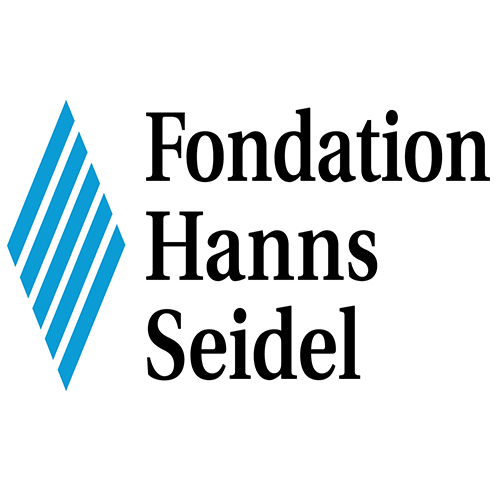Consultant-Fondation Hanns Seidel Retour vers les opportunités
Fondation Hanns Seidel
Lance Appel à consultantsÉchéance
29 Avril 2022 Il y a 4 ans
Partager l'opportunité sur
Détails de l'opportunité
Preparation of a Benchmarking to update the draft environmental code of Tunisia
- General framework
The legal and institutional framework relating to the protection of the environment in Tunisia has been built progressively, according to circumstances, to respond appropriately to the political orientations in this field. This process was undertaken under the impulse of the evolution of the international system of environmental protection, the international environmental conventions ratified by Tunisia, but also the environmental requirements and themes induced by the national development policies.
The legal and institutional framework thus put in place has made it possible to inject, according to needs and requirements, the appreciation of environmental considerations in various sectors of activity and their implementation by different actors and stakeholders.
Because of its genesis, the context is characterized by the diversity of its sources and the multiplicity of texts, knowledge of which does not flow naturally even for the most knowledgeable. In addition, there is the variable of the different environmental themes and related issues, not to mention the multiplicity of institutions and organizations involved in the field.
Because it is based on a sectoral vision of the environmental issue, the present framework, far from constituting a coherent, global and integrated whole, is more like a set whose elements are juxtaposed and, sometimes, superimposed with entanglements, overlaps and gaps on the normative and institutional levels, which are detrimental to its knowledge, legibility, use and effective application.
To remedy these shortcomings, the Ministry in charge of the environment launched a call for tender in 2009 for the preparation of a study entitled “Environmental law in Tunisia: diagnosis, evaluation and preparation of a draft Code”.
Launched in January 2010, this study resulted in a draft environmental code submitted in October 2013 with the ambition of “putting order into environmental legislation, facilitating access to the law, reinforcing legal certainty as a recognised requirement of a state governed by the rule of law, while contributing to the impregnation of society by environmental standards“.
Thus, the draft environmental code proposes to make coherent, unify and reorganize the legal framework relating to the protection of the environment to ensure its transition towards a global and integrated environmental code, but also a tool for a rational governance of natural resources, prevention of pollution and nuisances and an effective protection of the environment and health.
- Background and rationale
Drafted in French, the final version of the draft environmental code submitted by the consultancy firm in October 2013 was not followed up to prepare the Arabic version and thus enable it to be forwarded to the services of the legal adviser of the Presidency of the Government to initiate the necessary procedures in accordance with the circular of the Head of Government No. 8 of 17 March 2017.
Since October 2013, the national and international legal order has undergone substantial developments and changes, including the adoption of several environmental codes at the international level and which impact, to different degrees, the current content of the draft environmental code in Tunisia.
Anxious to relaunch the draft Environmental Code in view of the stakes that its adoption presents, not only for the consolidation of national law, but also for the protection of the environment and the sustainability of development, the Ministry of the Environment has initiated a reflection on the updating of the draft Environmental Code and its explanatory
memorandum, as well as their translation into Arabic language. In this regard, the Ministry of Environment, in collaboration with the regional office of the Hanns Seidel Foundation in Tunisia, has launched a process of updating the draft code of 2013.
As part of this process, a benchmarking exercise will be carried out, to further involve all stakeholders and to take into consideration comparative experiences. It is envisaged to develop a comparison through experience exchange sessions with an international expert to present the most advanced draft environmental codes.
- Objectives and content of the mission
- Objectives:
This mission is meant to complement the mission to update the former draft code and shall provide relevant insight into the different experiences in countries whose context is similar to the Tunisian one.
The objective of the requested expertise will be to carry out a comparative analysis between the old version of the draft environmental code in Tunisia and the most advanced international codes in environmental matters. This analysis will be made available to the appointed expert. At the end of this mission, good practices should be synthesized.
- Contents :
- To carry out this analysis, the expert is required to:
- Identify the most developed environmental codes worldwide
- Prepare and validate an interview guide for the meetings with the Tunisian experts
- Organize between 2 and 3 meetings (maximum duration of the meeting is one and a half hours) to share findings with these experts
- Moderate these (online) sessions by adopting an effective methodology
- Prepare summary reports summarizing the results obtained
- Expert profile
- At least 7 years of experience in the environmental sector.
- Excellent knowledge of international environmental legislation.
- Ability to conduct concise presentations and to synthesize the information gathered in an effective manner and build onto that.
- Ability to adapt the findings to fit into the Tunisian context.
L'opportunité a expiré
Cette opportunité n'est malheureusement plus disponible sur Jamaity. Visitez régulièrement la rubrique opportunités pour ne plus en rater.
Suivez Jamaity sur LinkedIn
Obtenez Jamaity Mobile dès maintenant

Appel à consultants Publié sur Jamaity le 25 avril 2022
Découvrez encore plus d'opportunités sur Jamaity en cliquant sur ce lien.

